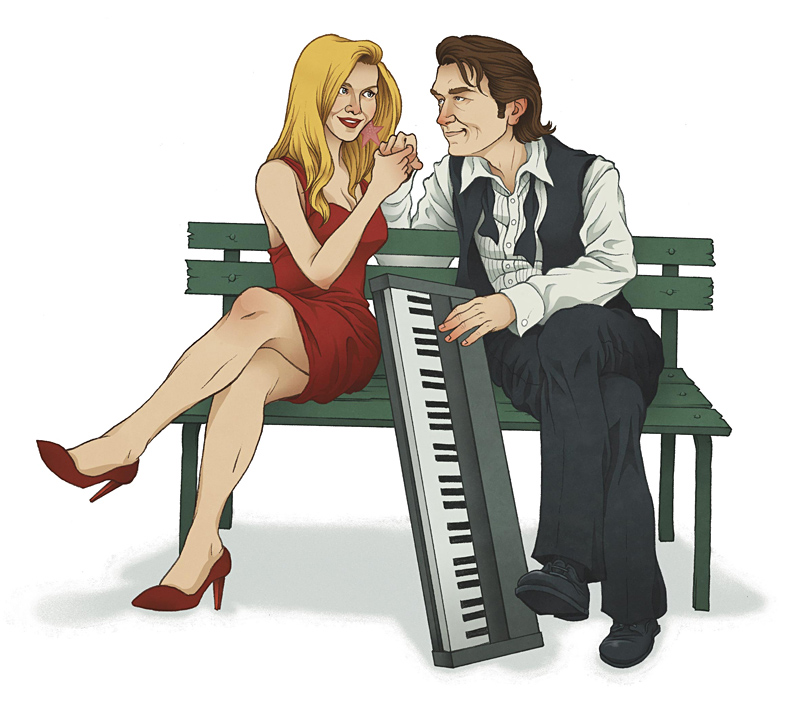‘TWAS THE NIGHT before Christmas Eve, and Rainier Beach High School athletic director Dan Jurdy, his boys’ basketball team having just ascended to a No. 1 national ranking by virtue of a 69-62 overtime win in the vaunted St. Louis Shootout, was thrilled. “This is a more complete team,” boasted Jurdy, comparing coach Mike Bethea’s current Viking squad to last year’s 29-1 state champ. “I think any ranking system . . . sometimes they’re right, and sometimes it’s fluff. You prove it by playing games at a national level. I wouldn’t have believed (the top national ranking) until we went back to St. Louis.”
Little did Jurdy know that his holiday hoop cheer would soon morph into a vicious New Year’s hangover, as Bethea’s Vikings, led by 6-foot-4 University of Southern California-bound twins Rodrick and Lodrick Stewart, dropped a pair of games to lesser-ranked opponents—Virginia’s Oak Hill and New York’s Rice—at the Academy National Invitational in Houston, which is universally regarded by high-school hoop gurus as the queen mother of national- caliber holiday tournaments. Cream of the crop for nary a week or so, Beach last week had dropped to No. 13 in the USA Today Super 25, all but dashing the Vikes’ “national title” hopes. (A 65-60 loss last Friday to cross-town Metro League rival Cleveland High School probably cinched it.)
“From what I saw of them last year, I would not have considered them a top-five team,” says recruiting expert Dave Telep of TheInsidersHoops.com. “They have great talent, but it didn’t surprise me when they lost.”
The USA Today Super 25 has been around for a quarter century. But only recently has it reached its zenith of purported credibility, what with ESPN2 televising high-school games featuring Air Apparent LeBron James of Akron, Ohio, a ripple-armed 6-8 phenom who half-seriously flirted with the idea of skipping his senior year of high school to turn pro.
Unlike computer or college polls, which feature either a mathematical formula or a balloting system from coaches or journalists around the country, USA Today keeps its criteria under close wraps. This leaves the curious to assume that the rankings are decided upon by a handful of in-the-know beat writers at McPaper, chief among them Chris Lawlor, who declined to reveal the poll’s system—assuming such a science even exists —during a recent online chat.
“As the season goes by, it [the Super 25] is just as accurate as any poll, whether it’s college, pro, or high school,” asserts Jurdy.
Like Jurdy, Telep feels that the Super 25 has at least marginal value. “I think they [USA Today] do a good job of identifying the top 25 teams in the country,” says Telep, who’s based in Durham, N.C. “Is there anyone outside of the top 25 that could win a national championship? Highly unlikely. They’re not missing teams.”
HORSESHIT, SAYS Cutting Edge Recruiting’s Mark Melvin, Telep’s Illinois counterpart. “I don’t think they [the rankings] are accurate at all,” says Melvin. “Trying to do a national ranking for high-school teams when the level of competition teams face is so different from state to state and city to city is ridiculous.”
If the poll’s history is any indicator, the quality of prep basketball in Washington state is average at best. Schools from California, New York, and Illinois typically dominate the polls, with coach Ed Pepple’s 1984 Quin Snyder-led Mercer Island High School squad being the only Washington school to ever hold down the No. 1 ranking prior to Beach. To wit, West Aurora, the team Beach was fortunate to squeak by (Aurora was without its top player) in the St. Louis tourney prior to earning the No. 1 ranking, will be lucky to even make its state tournament after a sure-to-be daunting Chicagoland regional showdown. Meanwhile, Beach can still expect to skate to the top spot in the Evergreen state.
One wonders whether that will be enough for Bethea and his troops, who appeared genuinely dejected after their losses in Houston. For his part, Bethea, one of the most successful coaches in Washington scholastic history, blames a recent spate of sloppy ball handling—a chink in the Vikes’ armor that was all too evident as early as St. Louis.
But perhaps Bethea should sneak a peek in the mirror when affixing blame for his team’s recent foibles on the national stage. While it’s true that he can’t bring the ball up the floor for his troops, one way in which a coach can alleviate a propensity to turn the ball over is to install a reasonably disciplined offensive system that is reliant upon picks, passing, and fluid motion. Conversely, Beach’s isolation-centered offense, which basically consists of spreading the floor and letting one of the Stewarts attempt to rock the rim, is scandalously devoid of anything resembling a screen and roll. In fact, Bethea has relied upon superior talent and the dribble-drive since Jamal Crawford led the Vikes to Bethea’s first state title in 1998, which, coupled with his typically mild-mannered public disposition, has earned him a reputation as a veritable Phil Jackson.
FOR MELVIN OF Cutting Edge, the ranking system serves as the ubiquitous axis of basketball evil. “With the increased emphasis on national rankings has come increased pressure to win and live up to them,” says Melvin. “In turn, you see teams rely too heavily on star players and their natural ability at the expense of developing players. The irony is that the kids hurt the most by this are the stars. They never get the opportunity to really learn the game. The game is being hurt at every level, as evidenced by our unexpected [world-championship] losses last year. Foreign teams have caught up to us by building a foundation for team play, by stressing the fundamentals over star talent and individual play.”
Still, for Bethea’s boss, it’s all about results. “There’s more motion than he’s given credit for; it works for these kids,” asserts Jurdy, who’s quick to point out that Bethea has successfully implemented more dynamic offensive systems as a summer AAU coach. “You can say he doesn’t do this and he doesn’t do that, but you know what? We’re winning.”









